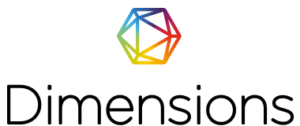PENERAPAN MODEL PEMBELAJARAN KOOPERATIF SNOWBALL THROWING DENGAN DISCOVERY LEARNING UNTUK MENINGKATKAN KEAKTIFAN DAN PRESTASI
DOI:
https://doi.org/10.32585/absis.v2i1.705Abstract
The objectives of this study are to increase the activeness and students learning achievement through the Snowball Throwing type cooperative learning model with Discovery Learning. This research is a Classroom Action Research (CAR) which consists of 4 stages with 3 cycles. The subjects are 29 students of class VII B SMP Negeri 16 Surakarta for academic year 2019/2020. The data collection techniques in this study are test, observation, and documentation techniques. The data analysis technique is carried out by analyzing the observation sheet and the analysis of the success of the action. Based on the research, the percentage of pre-cycle activeness data is 33.38%, the first cycle is 42.90%, the second cycle is 52.40% and the third cycle is 71.50%, while for classical completeness pre-cycle learning achievement is obtained 20.69% , cycle I 27.58%, in cycle II it increased to 44.83% and cycle III increased to 75.86%. From the results obtained, it can be concluded that the application of the Snowball Throwing type cooperative learning model with Discovery Learning can increase the activeness and students learning achievement of class VII B students of SMP Negeri 16 Surakarta in the academic year 2019/2020.Downloads
References
Asmarani, Dewi. 2017. “Pembelajaran Statistik Melalui Model Pembelajaran Kooperatif Tipe Snowball Throwing Untuk Meningkatkan Hasil Belajar Di Kelas VII SMP Negeri 1 Singosari.” Al-Khwarizmi: Jurnal Pendidikan Matematika Dan Ilmu Pengetahuan Alam 5 (1): 55–64. https://doi.org/10.24256/jpmipa.v5i1.266.
Fitriyah, Ali Murtadlo, and Rini Warti. 2017. “Pengaruh Model Pembelajaran Discovery Learning Terhadap Hasil Belajar Matematika Siswa MAN Model Kota Jambi.” Jurnal Pelangi 9 (2): 108–12. https://doi.org/10.22202/jp.2017.v9i2.1898.
Hirzi, Ristu Haiban, Sripatmi, and Hapipi. 2015. “Penerapan Model Pembelajaran Kooperatif Tipe Snowball Throwing Pada Pembelajaran Segiempat Untuk Meningkatkan Aktivitas Dan Prestasi Belajar Siswa SMPN 1 Lingsar Kelas VII-1 Tahun Pelajaran 2012/2013.” Jurnal Pijar MIPA 10 (1): 37–40.
Kadri, Muhammad, and Meika Rahmawati. 2015. “Pengaruh Model Pembelajaran Discovery Learning Terhadap Hasil Belajar Siswa Pada Materi Pokok Suhu Dan Kalor.” Jurnal Ikatan Alumni Fisika Universitas Negeri Medan 1 (1): 29–33. https://doi.org/10.24114/jiaf.v1i1.2692.
Kuncoro, Beni Bayu, and Agustina Sri Purnami. 2018. “Efektivitas Model Pembelajaran Kooperatif Tipe Snowball Throwing Terhadap Prestasi Belajar Matematika Siswa Kelas XI IPS MA YAPPI Gubukrubuh GunungKidul.” Prosiding Seminar Nasional Etnomatnesia 6 (20): 1013–18. http://jurnal.ustjogja.ac.id/index.php/etnomatnesia/article/view/2454.
Maulida, Alfa Hida, Mitia Fatma Ningsih, and Titis Bastian. 2018. “Pengaruh Model Discovery Learning Terhadap Kemampuan Komunikasi Matematis Dan Keaktifan Belajar Siswa Smp.” Delta: Jurnal Ilmiah Pendidikan Matematika 6 (1): 47–52. https://doi.org/10.31941/delta.v6i1.649.
Munawaroh, Mumun, and Ali Alamuddin. 2014. “Pengaruh Penerapan Model Pembelajaran Snowball Throwing Terhadap Hasil Belajar Matematika Siswa Dengan Pokok Bahasan Relasi Dan Fungsi.” Eduma : Mathematics Education Learning and Teaching 3 (2): 163–73. https://doi.org/10.24235/eduma.v3i2.62.
Rosarina, Gina, Ali Sudin, and Atep Sujana. 2016. “Penerapan Model Discovery Learning Untuk Meningkatkan Hasil Belajar Siswa Kelas Ix Pada Pembelajaran Ipa.” BIO EDUCATIO : (The Journal of Science and Biology Education) 1 (1): 372–80. https://doi.org/10.31949/be.v5i2.2597.
Rosdiana, D.T. Boleng, and Susilo. 2017. “Pengaruh Penggunaan Model Discovery Learning Terhadap Efektivitas Dan Hasil Belajar Siswa.” Jurnal Pendidikan: Teori, Penelitian, Dan Pengembangan 2(8) (2017): 1060–64. http://journal.um.ac.id/index.php/jptpp/.
Setiawan, Erik, and Primawati. 2019. “Studi Perbandingan Model Pembelajaran Snowbal Throwing Dengan Pembelajaran Konvensional Terhadap Aktivitas Dan Hasil Belajar Dasar Perancangan Teknik Mesin (Dptm) Siswa Kelas X Jurusan Teknik Mesin Smk Negeri 1 Bukittinggi.” Ranah Reasearch: Journal of Multidicsiplinary Research and Development 2 (1): 238–43. https://jurnal.ranahresearch.com/index.php/R2J/article/view/215.
Simarmata, Nada Naviana. 2018. “Upaya Meningkatan Hasil Belajar Siswa Dengan Menggunakan Model Pembelajaran Snowball Throwing.” Jurnal Imiah Pendidikan Dan Pembelajaran 2 (1): 79–86. https://doi.org/10.23887/jipp.v2i1.13854.
Styawan, Sili Wijak, Dewi Susilowati, and Andhika Ayu Wulandari. 2019. “Pengaruh Model Pembelajaran Kooperatif Tipe Snowball Throwing Terhadap Prestasi Belajar Matematika.” ABSIS: Mathematics Education Journal 1 (1). https://doi.org/10.32585/absis.v1i1.308.
Sudarsana, I Ketut. 2018. “Pengaruh Model Pembeajaran Kooperatif.” Jurnal Penjaminan Mutu 4 (1): 20–31.
Supriyanto, Bambang. 2014. “Penerapan Discovery Learning Untuk Meningkatkan Hasil Belajar Siswa Kelas Vi B Mata Pelajaran Matematika Pokok Bahasan Keliling Dan Luas Lingkaran Di SDN Tanggul Wetan 02 Kecamatan Tanggul Kabupaten Jember.” Pancaran 3 (2): 165–74.
Yoserizal, and Ulfia Rahmi. 2019. “Perbedaan Aktivitas Belajar Siswa Antara Model Cooperative Learning Tipe Snowball Throwing Dengan Tipe Think Pair Share.” Jurnal Basicedu 3 (4): 1055–64.
Downloads
Published
How to Cite
Issue
Section
License
Authors who publish with the Absis: Mathematics Education Journal agree to the following terms:
- Authors retain copyright and grant the journal the right of first publication with the work simultaneously licensed under a Creative Commons Attribution License (CC BY-SA 4.0) that allows others to share the work with an acknowledgment of the work's authorship and initial publication in this journal.
- Authors are able to enter into separate, additional contractual arrangements for the non-exclusive distribution of the journal's published version of the work (e.g., post it to an institutional repository or publish it in a book), with an acknowledgment of its initial publication in this journal.
- Authors are permitted and encouraged to post their work online (e.g., in institutional repositories or on their website) prior to and during the submission process, as it can lead to productive exchanges, as well as earlier and greater citation of published work.







